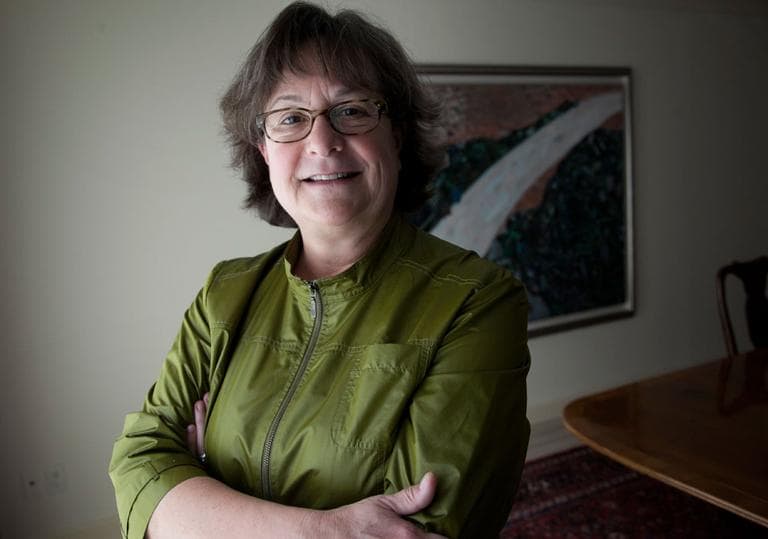Advertisement
Judge Defends Abortion Order For Mentally Ill Woman

A retired Massachusetts judge is defending her decision to order a mentally ill woman to have an abortion and be sterilized against her wishes.
Christina Harms is also criticizing Boston University for withdrawing a job offer after her ruling sparked controversy and was overturned by the state Appeals Court.
Harms, who retired last month, defended her ruling in a letter she sent Monday to other Massachusetts family court judges, saying she believed the schizophrenic woman — who in court records was identified as "Mary Moe" — would have chosen to have an abortion if she had been mentally competent. The letter was first reported by The Boston Globe.
Harms says BU withdrew a job offer soon after her ruling became public.
BU says Harms was not the appropriate candidate for a job that required interaction with students, alumni and the judiciary.
-- WBUR's complete interview with Harms is below. Reporting above by The Associated Press
Deborah Becker: It seems to me that the appeals court cited two main issues with your ruling. The first was the woman’s religious views. She described herself as very Catholic and opposed to abortion, but her parents were the ones seeking consent for the procedure because she apparently had been pregnant [two times] before and the parents have custody of one of her children. How do you balance something like that as a judge, when you’re trying to make a decision about someone who has mental health issues, but says what her views might be, and then her family’s request?
Judge Christina Harms: You do that with great difficulty. You do that with as much deliberation as you can. I considered such factors as the fact that she had had a previous abortion, the fact that I didn’t see any evidence of very Catholic behaviors. Things like, for example, going to church, wearing a cross. I didn’t think that having premarital sex or sex with multiple partners were very Catholic behaviors. So I tried to look at the evidence from as many places as I could get it to evaluate whether her statement, I am quote ‘very Catholic,’ really should be taken at face value or should have a more thoughtful analysis. The health and safety of the person was ultimately the single greatest factor for me. These cases are never crystal clear. They involve balancing multiple factors. They’re difficult, they’re unpopular.
Now one of the things that the appeals court took issue with was your order that the woman be sterilized after the abortion procedure. Why order that as well?
Well because it certainly was, frankly, the most difficult part of an overall difficult decision. After a great deal of thought, the issue of sterilization seemed to me to be too closely connected to my substituted judgment that an abortion was appropriate for Mary Moe. I struggled for quite some time with whether it would be intellectually dishonest for me to just push the sterilization dilemma aside. But, at the age of 31, Mary Moe being delusional and suffering from schizophrenia and presenting to me, when I interviewed her, as confused, unaware of her circumstances, already been pregnant, now for a third time. I didn’t find anything to suggest that she would stop her practice of unprotected sexual activity and I believed that these particular circumstances compelled me to address the question of whether Mary Moe’s substituted judgment would be to continue serial unplanned pregnancies, and therefore serial abortions.
Obviously that was the thing that many people felt was a draconian measure to take on the part of a judge.
I think it has to be balanced against the draconian possibility of serial future abortions.
Now, another issue here is that you were in talks with Boston University about a law school job prior to this controversy but then the university eliminated you from consideration after the public criticism of this ruling. Now the university says to The Boston Globe that your ruling gave it pause, and the controversy did give it pause, but there were several things that led hiring officials to conclude that you might not be a good fit for the job. I know you’re concerned about that but isn’t it the university’s or any employer really, isn’t it their prerogative to do something like that, to change their mind after a controversy or something?
Here’s my position, this action by BU law school is exactly the wrong message to teach to budding law students about judicial independence. BU says, quite plainly, that it was the public reaction to my decision that made them revoke the job offer or the job or however they want to phrase it. So, does that mean that judges should consider what the public reaction would be before she hands down a decision? Should I have said to myself, ‘Well if I do what I think is right here, I could lose my job at BU. So I better not do that and do what I think they would want me to do or would give me high approval ratings with the public.’ Being a judge is not like being on "American Idol" and that is an important, important message.
This program aired on February 21, 2012.
